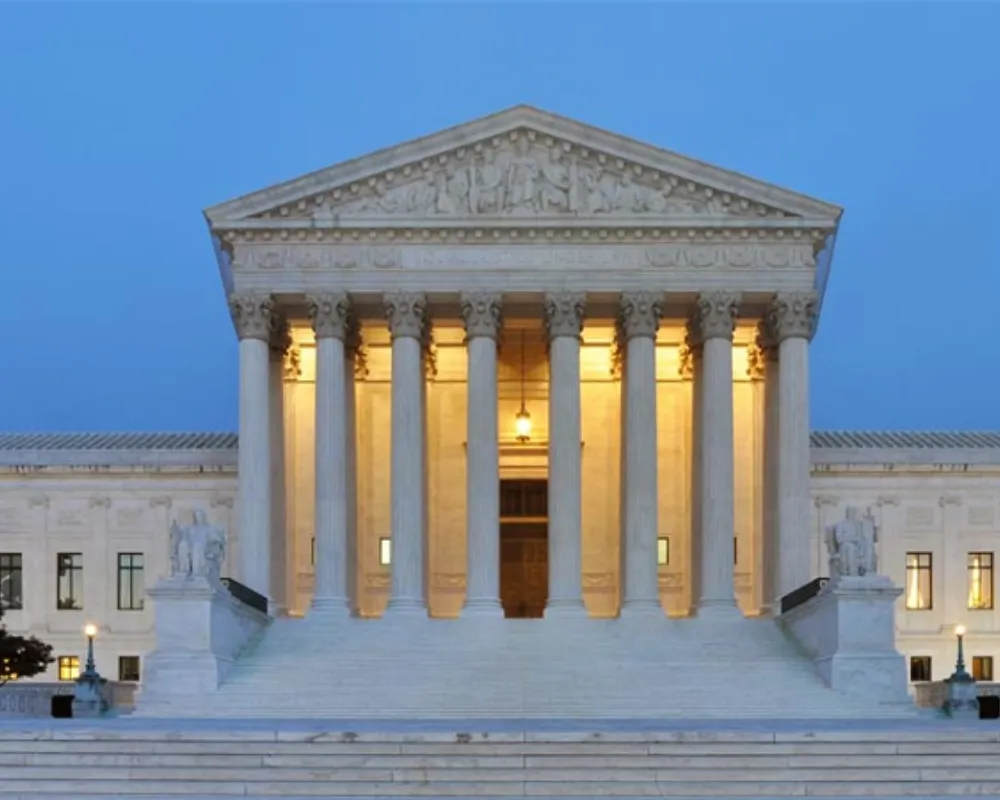undocumented immigrants, upholding a lower court injunction amidst challenges from rights groups.
 Sseema Giill
Sseema Giill

WASHINGTON D.C. — The U.S. Supreme Court on Wednesday declined to lift a lower court's injunction, effectively blocking Florida from enforcing a controversial state law that would have criminalized undocumented immigrants for merely entering or remaining in the state. The brief, unsigned order by the nation's highest court, without any noted dissents, leaves in place a federal judge's preliminary injunction while legal challenges against the law proceed.
The Florida statute, known as Senate Bill 4-C (SB 4-C), was enacted in February 2025 by the Republican-led legislature and signed by Governor Ron DeSantis. It sought to make it a felony for certain undocumented individuals to enter Florida, imposing mandatory minimum prison sentences ranging from nine months to five years depending on prior convictions. The law also required detention without bail and mandated that those convicted share fingerprints and biometric information with Immigration and Customs Enforcement (ICE). Proponents argued the law was necessary to address the "evil effects of immigration" and complement federal enforcement efforts.
However, a coalition of civil rights and immigration advocacy groups, including the American Civil Liberties Union (ACLU) of Florida, the Florida Immigrant Coalition (FLIC), and the Farmworker Association of Florida (FWAF), swiftly filed a lawsuit challenging its constitutionality. They argued that SB 4-C unlawfully encroached upon the federal government's exclusive authority over immigration policy, violating the U.S. Constitution's Supremacy Clause and Dormant Commerce Clause by attempting to create a parallel state-level immigration enforcement system.
In April, U.S. District Judge Kathleen Williams granted a temporary restraining order, later converted into a preliminary injunction, blocking the law's enforcement. Judge Williams found that the plaintiffs demonstrated a strong likelihood of success on the merits, reasoning that the law is likely preempted by federal law. The ruling also made national headlines when Florida's Attorney General, James Uthmeier, was held in civil contempt by Judge Williams for allegedly defying her order to properly notify law enforcement agencies about the injunction.
Florida appealed to the 11th U.S. Circuit Court of Appeals, which refused to stay the injunction and set an expedited schedule to hear the appeal in October. The state then sought emergency intervention from the Supreme Court, arguing that states have the sovereignty to criminalize illegal entry and re-entry within their borders and that the law aligns with federal immigration policy. The Trump administration had also reportedly supported Florida's stance, arguing the state law "complements" federal law.
Nevertheless, the Supreme Court's Wednesday decision underscores a long-standing judicial precedent that immigration enforcement is primarily a federal responsibility. Similar state-level efforts to criminalize immigration have been previously blocked by federal courts in states like Oklahoma, Iowa, Idaho, and Texas, consistently affirming that such state measures infringe upon the federal government's exclusive authority.
Bacardi Jackson, executive director of the ACLU of Florida, welcomed the Supreme Court's order, stating, "This ruling affirms what the Constitution demands — that immigration enforcement is a federal matter and that no one should be stripped of their liberty without due process." While the Supreme Court's ruling is a significant setback for Florida's immigration agenda, the legal battle is not over, with the state's appeal set to continue in the 11th Circuit.






Sign up for the Daily newsletter to get your biggest stories, handpicked for you each day.
 Trending Now! in last 24hrs
Trending Now! in last 24hrs